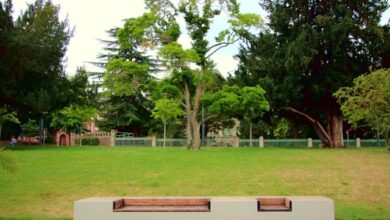Stay Informed about Dubai’s Major Transport News and Updates for 2024

The Roads and Transport Authority (RTA) in Dubai has announced several major updates to the public transportation system that will take effect in 2024. These changes aim to enhance traffic flow, expand infrastructure, and improve the overall commuting experience for residents and visitors. It’s important for those living in or traveling to Dubai to stay up-to-date on these developments.
This article provides an overview of the key transport news and changes happening in Dubai this year, including increased Nol card minimums, paid parking at Dubai Mall, and new Salik toll gates. We’ll explore the context and implications of each update so you know what to expect.
Overview of Dubai’s major transport updates in 2024
2024 is shaping up to be a year of transformation for getting around Dubai. With Expo 2020 now over, Dubai is focusing on infrastructure enhancements that cater to residents rather than short-term tourists. Several major policy changes and construction projects are slated for completion this year.
Key updates include revised Nol fare rules, paid parking systems coming to Dubai Mall, and additional Salik road tolls. The RTA aims to streamline public transit, decrease traffic congestion, and generate revenue through these measures. Understanding these changes now ensures that commuters can plan accordingly when the new policies are implemented.
Importance of staying informed about transportation changes in Dubai
With a rapidly developing infrastructure and ever-expanding population, Dubai prioritizes progress in its public transit systems. The city often unveils new routes, fees, and policies aimed at supporting growth and enhancing the rider experience.
Staying informed about these changes is key for residents and visitors alike. Knowing the latest transportation rules and routes allows commuters to plan trips accordingly, budget for fare increases, and take advantage of new options. It also ensures a smoother adjustment period when navigating revised transit systems.
Overall, understanding Dubai’s transportation landscape is essential for getting around the evolving city. Residents and visitors who monitor transit news will be better positioned to move seamlessly through Dubai as updates roll out in 2024 and beyond.
Major Transport Updates in Dubai for 2024
Dubai has unveiled several impactful changes to its public transit system taking effect in 2024. These updates look to streamline services, ease congestion, and enhance the rider experience through new fees, infrastructure, and policies.
Major developments include an increased minimum top-up amount for Nol cards, paid parking at Dubai Mall, and two additional Salik toll gates along key roads. These builds on Dubai’s reputation as a world leader in efficient, innovative transportation for residents and visitors alike.
Increased minimum top-up amount for Nol cards
In January 2024, the RTA announced that the minimum amount for topping up Nol transit cards would increase from AED 5 to AED 20. Additionally, the minimum card balance for riding Dubai’s Metro trains is rising from AED 7.5 to AED 15 to cover a return trip.
Nol cards are rechargeable smart cards used to pay for RTA buses, metro trains, parking fees, and more. The fare increase aims to reduce the processing load for low-value transactions. Higher minimums encourage riders to top-up less frequently and maintain a usable balance.
Impact of the new minimum top-up amount on commuters
The four-fold increase to the Nol card’s minimum top-up amount will require Dubai commuters to budget more money upfront for public transit. Whereas before a top-up of AED 5 might cover a day’s travel, now AED 20 or more will be needed to avoid denied payments.
For low-income residents and workers, this may represent a hardship requiring lifestyle changes. Those with tighter budgets will need to plan trips more carefully and limit unnecessary travel to conserve their Nol balance.
Overall, Dubai riders will adapt to the revised Nol policies through smarter planning and bulk top-ups. Streamlined payment processing and card usage data will aid the RTA in further perfecting fare rules and transit efficiency.
Paid parking in Dubai Mall
In a major shift from current policy, Dubai’s Roads and Transport Authority has approved paid parking at the sprawling Dubai Mall in 2024. Previously, the mall offered free self-parking and valet services to all visitors.
Effective in Q3 2024, Dubai Mall will introduce paid parking managed by Salik, Dubai’s automated toll collection system. License plate recognition will identify registered vehicles, charging an undisclosed hourly or daily rate. Payments will automatically deduct from the driver’s Salik account.
Paid parking looks to address overcrowding and congestion within the expansive Dubai Mall garage. Rates can be adjusted as needed to promote turnover and ensure shoppers can easily find a space.
Implications of paid parking at Dubai Mall
The shift to paid parking at Dubai Mall holds several implications for visitors and the retail economy. Shoppers will now need to factor in parking fees when budgeting trips, potentially limiting impulse spending.
If rates are set too high, traffic may simply overflow to surrounding free lots and spill into unauthorized spaces. Lower-income residents may avoid visiting the high-end mall if total trip costs become excessive.
However, paid parking can also increase turnover, ensuring spots are available for those willing to pay a premium during busy periods. Enforcement should curb unauthorized parking as visitors pay rather than risk fines.
Salik gates and other significant changes
Alongside updates to mass transit and parking policies, Dubai’s road infrastructure is also seeing major changes in 2024. Most notably, two additional Salik automated toll gates will begin operating in November.
The new gates will be located at the Business Bay Crossing on Al Khail Road and southbound on Sheikh
Zayed Road between Al Meydan and Umm Al Sheif streets. This brings the total number of Salik gates across Dubai to 10.
Additional gates help fund road maintenance and expansions to serve more areas of Dubai. Locations are strategically chosen to cover key routes and reduce congestion choke points.
With more Salik gates spread across arterial highways, drivers should prepare for increased toll fees. Commuters can save money by adjusting routes to avoid gates when possible or traveling during non-peak hours for lower rates.
Importance of understanding and adapting to these updates
Dubai’s 2024 transport updates usher in new fees, routes, and policies that residents must adjust to accordingly. Failing to understand the changes risks fines, denied payments, and unnecessary costs.
Citizens should proactively set up Salik accounts, load sufficient Nol balances, and map new parking rules for frequently visited areas. Visitors must research the latest protocols prior to arrival as well.
Beyond avoiding penalties, adapting to policy and infrastructure changes allows commuters to take full advantage of Dubai’s world-class transit network. Updated routes promote easier access across the emirate while dynamic pricing helps limit congestion.
Conclusion
Dubai continues cementing its reputation as a global leader in transportation innovation and efficiency. 2024 brings notable policy revisions and infrastructure expansions through increased Nol and Salik fees, paid parking at the Dubai Mall, and additional metro lines. While increased costs may frustrate some commuters, Dubai’s transit updates ultimately enhance the rider experience. Adjusting to the changes now allows residents and visitors to take full advantage of the city’s best-in-class network. By staying informed and flexible, the public helps Dubai build the connected, convenient transit future it envisions. Through cooperation and feedback, the RTA can tailor its advances specifically for rider needs.



